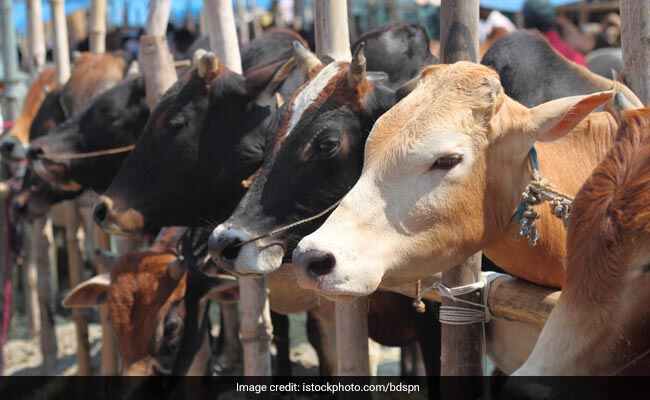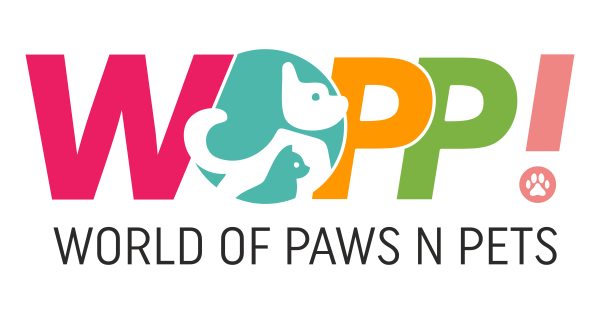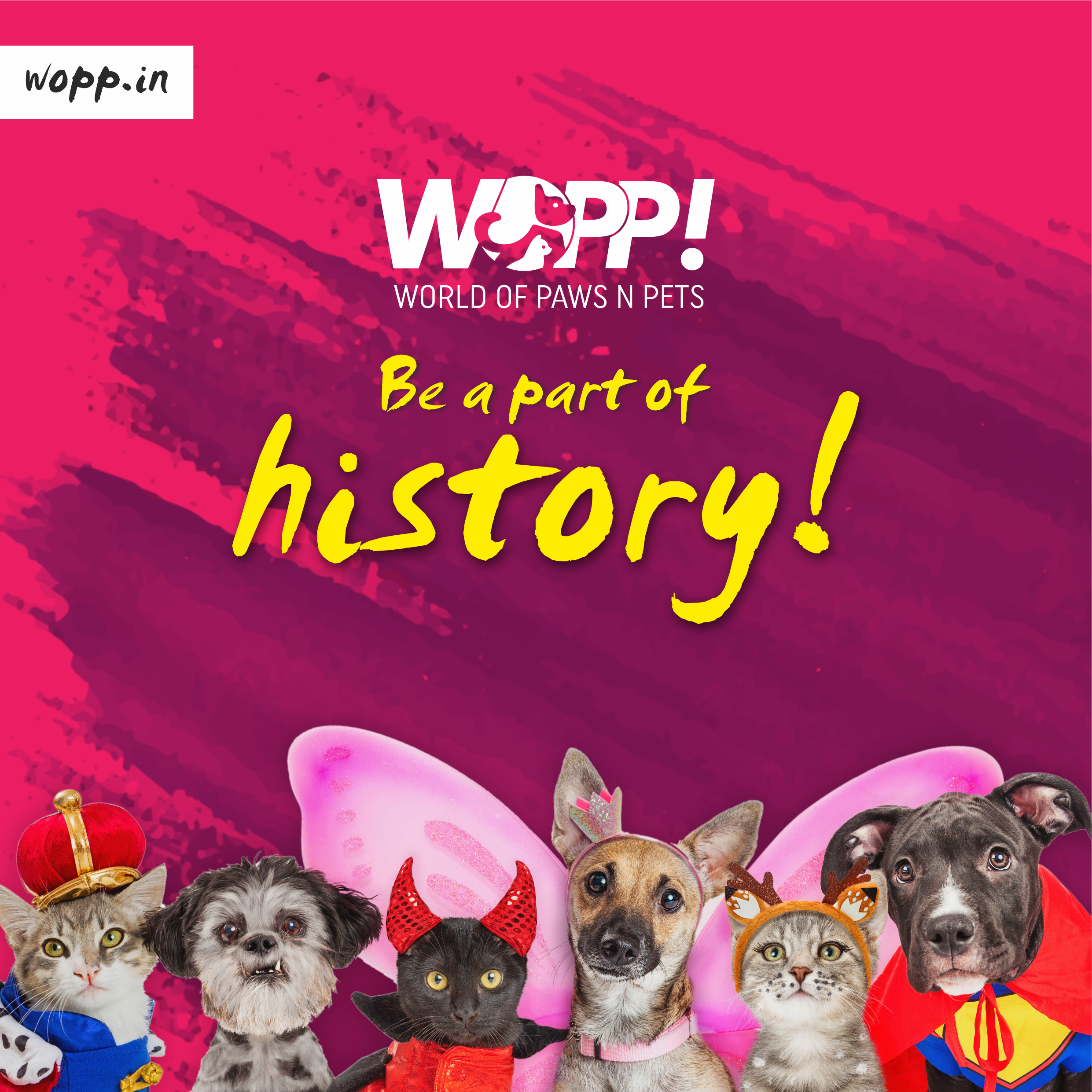We cage animals, we test on animals, we hunt animals, we kill animals. The scale and intensity of animal suffering is far greater than any other form of suffering and yet it is a suffering that goes unnoticed by most of us. Despite this animal harm and exploitation on a massive scale, financial support for animal welfare causes is less than 1 per cent of the amount that comes in for human causes.
It’s now time to fight for the dignity of animal life. It’s now time to treat all sentient beings with compassion. Join hands with the India Animal Fund Freedom For All campaign to help animals.
We leave you with some of the highlights from the #FreedomForAll telethon
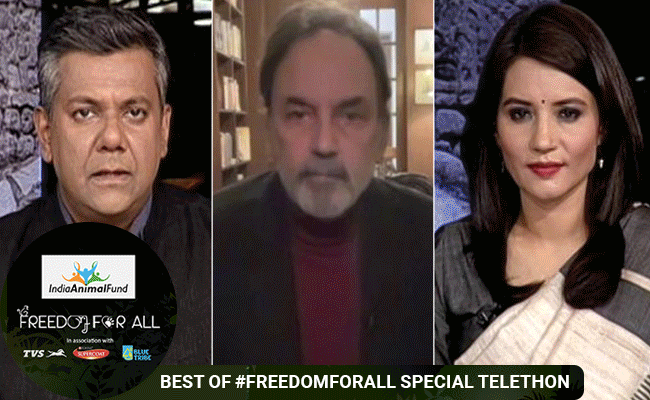
1 crore and 73 lakhs! Thank you, donors for your relentless support to #FreedomForAll campaign
The two-hour special #FreedomForAll telethon might have culminated but you can still donate for rescue and relief efforts. Donate to support the cause that resonates with you. Donate for #FreedomForAll: https://special.ndtv.com/freedom-for-all-108/donate-now
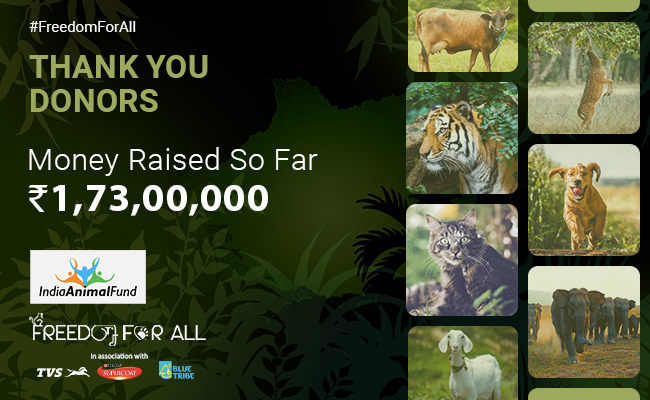
Wondering how you can reduce animal suffering? Parag Agarwal shares three key tips
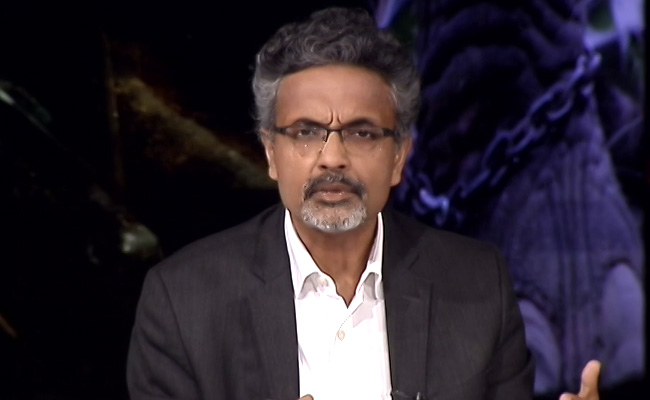
Everyone can contribute to reducing animal harm and exploitation. I would ask everyone to do three things:
- Make informed choices about what you eat and what you buy – don’t just keep doing what you have been doing for years out of habit. I would recommend to the audience that they watch a few world class documentaries – the game changers, Earthlings and Slay.
- Keep a bowl of water and food everyday for an animal on the street. I do this every morning and it is a wonderful start to the day.
- Please support India animal fund. Every rupee that we receive will improve the life of an animal.
At the #FreedomForAll telethon, Sandeep Sibal, Co-Founder, India Animal Fund shares alternatives to animal products
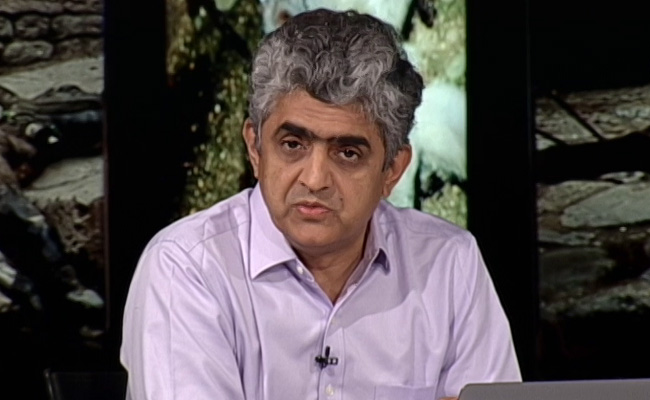
Human ingenuity and innovation is almost limitless, and its role in our moral evolution as a species has been substantial. Some of our inventions have been frankly fortuitous in reducing animal exploitation. The goal was a simply better solution which ended our exploitation of animals.
Over the past decade or so, driven by a rising consciousness, especially among millennials and Gen-Z who are generally far more conscious about the environment and animal welfare, there are a slew of very innovative solutions that are making it to market, which could well become commonplace – much like the smartphone has become part and parcel of modern life. Meat alternatives are becoming ubiquitous and the sophistication of these alternatives is growing by the day.
I have here Blue Tribe’s range of products like this mutton patty and pork pepperoni which are made from plants and satisfy the craving for a meat like eating experience. Demolish Foods makes these whole-cut chicken breasts that are in this plate in front of me, one of which has been cut and cooked to make chicken tikka that is virtually indistinguishable in terms of taste and texture.
Dairy alternatives have quickly gained acceptance among consumers in various countries and now in India. I have in this glass a plant-based milk made by Alt Foods. Its made with sprouted ragi, sprouted jowar, amaranth and oats – making it perhaps the first millet-based milk in the world. On the materials front, we have companies innovating to develop alternatives to materials derived form animals like wool, fur, leather and silk. I am holding in my hand a few leather samples made by Ultraw. This leather is 99% plant-based and is biodegradable.
Animal agriculture is responsible for almost 50% of climate change: Actor Alicia Silverstone
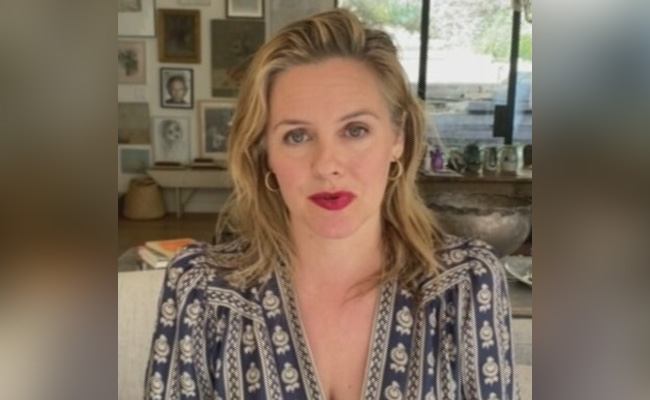
I turned vegetarian when I was a small kid. But when I was 21, I turned vegan after seeing the horrifying footage of what happens to animals in slaughterhouses. I made the connection between the food on my plate and the animal that was slaughtered for my meal. For me, it was just one meal, but for the animal it was their life. I’m committed to a vegan lifestyle because animals don’t deserve to be exploited and abused. Babies don’t deserve to be cruelly separated from their mothers. As a mother myself, I can feel their pain. Animals deserve our kindness and compassion. So if you feel the need to make more humane and healthier choices, then start with what’s on your plate. You can make a gradual change from a diet that contains animals to a diet that is plant-based and free of cruelty. Then watch as you feel better and your body becomes healthier.
Then there’s the environment. Animal agriculture is responsible for almost 50% of climate change. Then there’s your health. You can eliminate almost every medication that you’re on with the support of your doctor. When you start eating this way, When you eat plants and eliminate animal food, it is gonna do nothing but make you feel healthier and better, and your most vibrant self. So I join India Animal Fund in all of their endeavors to help animals lives, including farm animals.
Kuntal Joisher is the World’s first vegan to climb Mt Everest not once but twice! At the #FreedomForAll telethon, he talks about his diet and achievements
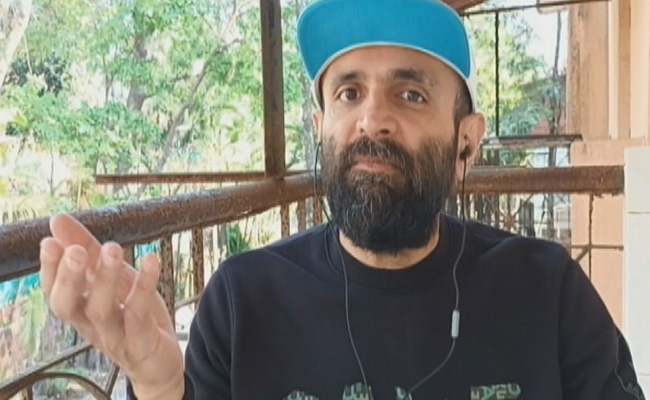
As someone with a scientific-oriented mindset, I knew that a well-balanced and plant vegan diet would supply me with all of those nutritions required to not only survive, but thrive while climbing these big mountains. That is why I promised myself that I was going to climb Everest as a vegan, or not do it at all. Now, as I reflect upon the last 12 years of my journey, I have been to the top of Mount Everest twice already, both from the Nepal side and the China side. I have climbed to the top of the tallest mountain in southern America, the tallest mountain in northern America, and I have been part of many, many tough and difficult expeditions across the world.
As someone who works, as a nutrition and a fitness coach and an expert today, I can tell you that veganism is going mainstream. A plant-based diet is going mainstream, and there is a lot of research that has been coming out in the last few years demonstrating that, truly speaking, there’s no difference between a plant-based diet compared to an omnivorous diet when it comes to building muscle, when it comes to building stamina, when it comes to building endurance, and which is why I stand here and say that we don’t have any excuse today to not be a vegan, to not adopt a plant-based diet. Because not only is it good for us, not only is it good for the animals, but it is good for the planet and is good in every aspect.
Patrik Baboumian, Strongman, Powerlifter and former Bodybuilder talks about performing physically demanding deed on a wholly plant-based diet
Researchers have discovered that people who eat more animal protein are not healthier than people who get their protein from plants:

If you look at the traditional Indian diet, it actually has treasures of foods that are not only delicious, but rich in the nutrition that we need, including protein. I’m talking about lentils, beans, chickpeas, vegetables and grains. These foods give us the protein that we need. Now, some have argued, no animal products are more densely packed with protein, so we should choose them instead. What they mean is that meat or eggs or dairy products have protein in them. They do. However, researchers have discovered something that’s very important, and that’s that people who eat more animal protein are not healthier than people who get their protein from plants. In fact, they’re much less healthy. Why would that be? Well, the first reason is what comes along with all that protein. If you’re getting protein from animal products, you get cholesterol, you get saturated fat along with it, as well as infective organisms like salmonella and e coli.
When you get your protein from plants, there’s no cholesterol, there’s virtually no saturated fat. Instead, there are things you need, like fiber, healthy, complex carbohydrates, vitamin C, other vitamins, antioxidants. The other part though might be the protein itself. A protein molecule looks like a a string of beads. Each bead is an amino acid, and your digestive tract separates those beads, those amino acids, you absorb them and you make your own proteins from them. And different foods have slightly different strings of beads, if I can put it that way. A slightly different collection. They have different amino acid profiles. If you eat grains and beans and vegetables, you’ll get all the essential amino acids that you need. But it turns out that the collection of amino acids that you get from plants appears to be healthier than the amino acids that are gonna come to you from animal products. There are certain ones in animal products like lysine and methionine that seem to be too concentrated in the animal proteins, and that can be bad for human health. Bottom line, if we’re eating our beans and other legumes, our grains and our vegetables, you’re getting the protein that you need in its healthiest possible form. And luckily, their traditional Indian foods are wonderful sources of not only good taste, but good nutrition too.
A first-hand experience of what caged animals go through
Jayasimha Nuggehalli, Founder, India Animal Fund joins #FreedomForAll telethon and talks about animal suffering in India

In my line of work, I have visited a lot of factory farms as well as abattoirs in my life, across the globe. A lot of time, when you step out of a slaughterhouse, you have seen a lot of suffering and you are like, oh well, it is over for the animals, they don’t continue to suffer. But when you walk into a factory farm, hens are confined in cages where they are given less than A4 size sheet paper their entire life. When you walk into a tabela or dairy farm where these animals are tethered so much that they can’t even move. You have cubs who are day old been sent to slaughter.
To know that this suffering kind of continues when you step out of the farm as well. When you just look at everything that we do to animals as human beings, what happens in factory farms is just inexcusable and we just continue to do this with just the idea that we need to be producing cheap meat. And all of this is being done under the pretext of food security. When you really look at science, that actually says that intensive animal agriculture hurts the food security of a particular nation. It only puts food in places where there is excess nutrition. It hurts farmers and small families. It creates a huge amount of issue when it comes to air quality. I do think that many a times death is probably the best thing that happens to these animals.
An ace athlete, an Olympic silver medalist in cycling, and the holder of multiple records, Dotsie Bausch. She won an Olympic medal at the age of 37, interestingly on a plant-based diet. At the #FreedomForAll telethon, she explains her diet
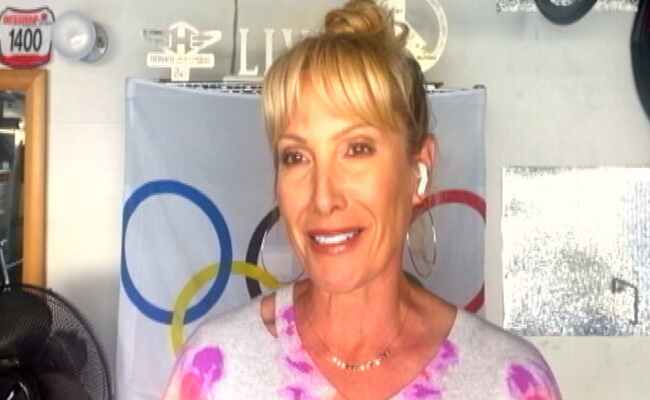
It is a complete and utter myth that we need protein from animals. What’s important is that we need protein, right? We need all three macronutrients, or we would die. We need protein, we need carbohydrates, we need fats. But we don’t need protein that comes from an animal. And if you just think about the biggest animals in the world that have the most muscle mass, like a rhinoceros or an elephant, they’re herbivores. They get all their protein from plants, and there are bountiful sources of protein in the plant world. You’ve got legumes, you’ve got nuts and seeds. You have all sorts of grains and wonderful vegetables. In fact, imagine this, if you ate only broccoli for the entire day and you ate 2000 calories of broccoli, you would be getting 220 grams of protein. So there’s protein in everything.So macronutrients are important. Yes, definitely. But in my opinion, micronutrients are the real workhorses of good repair and recovery for an athlete. Things like vitamin C and vitamin V and vitamin E and zinc, selenium, magnesium, potassium, those are all the micronutrients. And that’s, that’s where the real repair comes in, right? That’s where you start to build muscle tissue, and that is where the fluidity of your body movement comes through. It’s in all those micronutrients that really hold us up as elite athletes and really make it so that we can do what we’re meant to do. And it’s plants. It’s the plant kingdom where all those beautiful, wonderful, exuberant, energy giving micronutrients stem from.
Wild animals belong in nature, not in our wardrobes: Dia Mirza, Actor, Eco Investor, Goodwill Ambassador UNEP, UN Secretary Generals Advocate for SDGs

Nestle is partnering with India Animal Fund to promote adoptions, and talking about that is Chairman and Managing Director of Nestle India, Suresh Narayanan

Many of us own pets, either a dog or a cat. And we have had many hours of joy and happiness in their company, and yet there are hundreds and thousands of dogs and cats, for various reasons, who are left on streets and bereft of the opportunity to be part of a loving home. I do hope that this initiative is able to inspire us all to adopt these dogs and cats in the country. Purina is the by-word for nutrition for dogs and cats, and has built its reputation over decades. Purina provides not just quality nutrition, but also the capability of your pet to have hours of joy and happiness in the company of the family, and indeed to enrich the quality of your home. I commend this initiative and I look forward to Purina partnering with the Great Indian Breed to promote the adoption of stray dogs and cats, and indeed pets, in our country.
Every home with a pet is a very different home: Anand Siva, CEO, India Animal Fund joins #FreedomForAll telethon and speaks about his obsession about driving adoption
At #FreedomForAll telethon, Actor Madhuri Dixit shares the story of adopting Carmelo, her indie dog and gives out the message of adopting a pet rather than buying one. She says, “Giving a rescued animal a permanent home will change your life in wonderful ways”

“For the health of humans, we need to take care of the health of the animals also”, says G V Prasad, Co-Chairman & MD of Dr. Reddy’s Laboratories. Dr Reddy’s Labs pledges Rs.1 crore for India Animal Fund
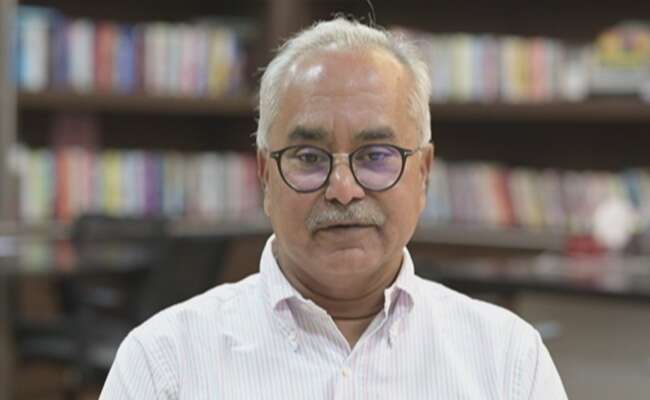
As Dr. Reddy’s, we are a pharmaceutical company, deeply interested in the health of all human beings. But we realize that the health of human beings is intricately related to the health of our planet and our ecosystem. And animals are an important part of our ecosystem. And for the health of humans, we need to take care of the health of the animals also. So in a way, we are very happy about this launch of this fund, and we are happy to support this from our CSR funding. We commit to contribute one crore rupees to this fund. And personally, I am an animal lover and a wildlife enthusiast, and I’m also happy to contribute to this fund myself personally. I hope that this fund makes a big difference to the lives of animals and all sentient beings on this earth. All the best.
Alokparna Sengupta MD, Humane Society International on illegal breeding of dogs in India
45 minutes into #FreedomForAll telethon and the campaign has already raised Rs.73,25,000
Thank you, donors. Your supports means a lot to the animals who only have our support. Keep these donations coming. To know more, click here.
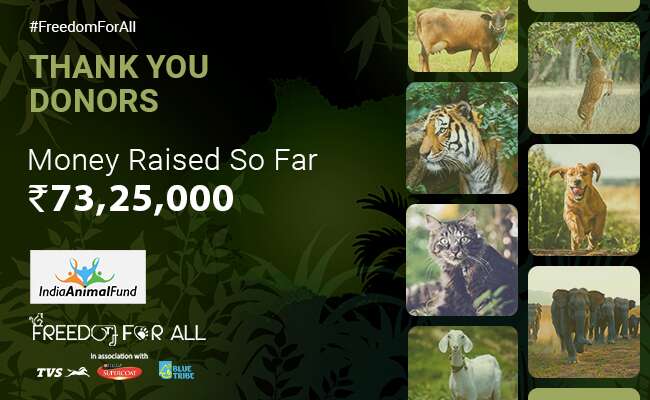
Just like humans, every animal deserves the right to live, says Diya Surana, Micro Labs Limited
At the #FreedomForAll telethon, Diya Surana announced that Micro Labs will partner with India Animal Fund to create India’s first integrated animal helpline.
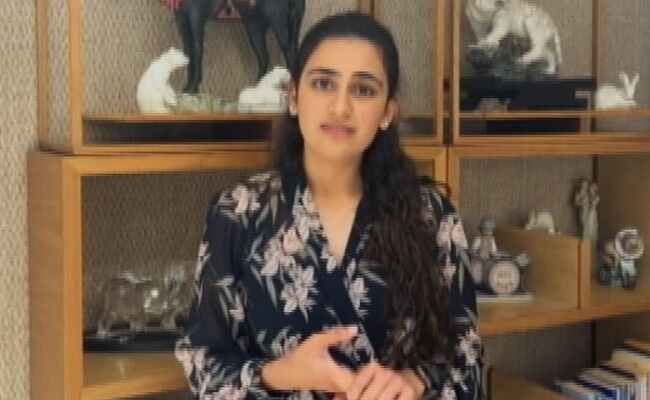
We need to take care of the voiceless, support them and make sure they are not harmed, and give them a good life: Shikhar Dhawan, Indian Cricketer
Reckitt comes in support of #FreedomForAll, pledges to give Dettol worth ₹ 1 crore to use in animal shelters
Animal welfare should concern us all. Human health issues, environmental degradation, global warming and challenges of animal well-being are all interconnected. There is an imminent need to be aware of and to adopt a one-health approach. For one to be healthy, the planet and all living beings on it need to be healthy. Show your support, donate now.
The reality of shelters in India – an on-ground report
Often when people spot an animal in need of help, the first thought is of sending it to an animal shelter. But the shelters face many challenges themselves. NDTV’s Sohit Mishra brings us this report from Karjat on the reality of shelters in India.
Thank you, Donors! More than ₹ 20 lakh raised in less than 1-hour.
You too can support animals by donating for their welfare. To know more, click here: https://special.ndtv.com/freedom-for-all-108/donate-now
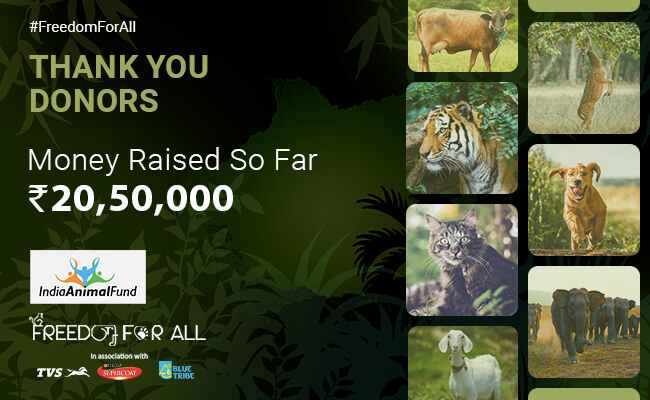
Community dogs suffer because, the Prevention of Cruelty to Animals act is so archaic that there are very low fines and the jail sentences are abysmal: Abodh Aras, CEO, Welfare of Stray Dogs
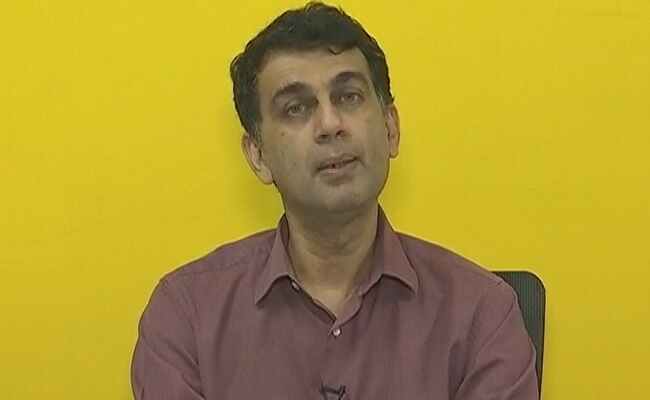
Without animals, I think the entire universe will be doomed: Justice (Retd) KS Radhakrishnan, Former judge, Supreme Court of India, at #FreedomForAll telethon

Prevention of Cruelty to Animals (PCA) Act was enacted in 1960. It is true. It was not amended for the last so many years. That is exactly the reason why the Supreme Court, in Animal Welfare Board of India case, interpreted the various provisions of the PCA Act in the light of the constitutional provisions and made a judgment, judgment law under Article 142 of the Constitution. Under Article 142 the Supreme Court can make a judgment law on any matter, any cause that is brought before the court. And once the court is satisfied that there’s a lacuna, it has to be remedied by the parliamentarians, by passing a proper legislation. Of course, in various matters, for example, transgenders case, for example slavery and all that, it took long, long years to legislate.
In my judgment also, I have specifically indicated that there should be a world body which will protect the rights of animals. We have a United Nations. We have united human rights. That is protecting the rights of human beings wherever in the whole universe, whole world. But why not? Why not an international community wake up and bring an international legislation applicable to all countries through the intervention of United Nations, so that let there be a separate body for protecting the rights of animal. That is also one of the species in the earth. Without animals, I think the entire universe will be doomed.
#FreedomForAll: Gauri Maulekhi, Trustee, People For Animals on how is animal cruelty impacting society at large
Animals deserve to have a normal life: Sir Paul McCartney, Former Beatles member

I have always been a great advocate of animal welfare because I believe that on this beautiful planet that we live on, our fellow creatures are really important. Here we are at this time in space, in the universe, and there’s us humans, and there’s animals. And I always think that they deserve to have their best shot and to have a good chance and a normal life. So, I hope you will be able to support the India Animal Fund and like me, try and give a good chance to all our fellow creatures to live a beautiful, harmonious life. They deserve it.
India Animal Fund will match the public donations received during 2-hour #FreedomForAll telethon: Parag Agarwal, Co-Founder, India Animal Fund
You can also help reduce animal exploitation and suffering in India by becoming a part of #FreedomForAll campaign and donating to support an animal you love. To donate, click here.
CK Venkatraman, MD, Titan Company pledges ₹ 10 lakhs to India Animal Fund

All the animals around us need our support, deserve everything that we can do for them. And from my side, I’m happy to contribute 10 lakhs to the India Animal Fund to support everything that they plan to do for the animals.
Sandeep Sibal, Co-Founder, India Animal Fund joins #FreedomForAll telethon and explains how his organisation helps the cause of animal welfare

India Animal Fund is a donation platform that connects donors with nonprofits that are working on various aspects of the animal welfare sector. While on the one hand animal suffering is arguably much greater in terms of scale and intensity as compared to human suffering, we know that the funds that corporates devote to animal welfare is about 1/2 a percent of the funds that are devoted to human welfare, and while I don’t have the numbers I suspect this is true of individual donations too.
There is a dire need to mainstream animal welfare, and bring it front and center – out from the shadows of human welfare which is where it is often situated.
One of the biggest challenges in animal welfare is connecting donors with appropriate NGOs that are working on causes and projects that donors care about. These include farm animal welfare, rescue and relief, law enforcement etc.
We also help monitor projects done by our NGO partners to ensure that funds are used effectively and efficiently. We also help identify projects based on impact, neglectedness, and tractability to help prioritise which set of projects may best align with them. There are an extremely diverse set of causes and projects for donors to choose from, and I’d like to invite all those watching the show tonight to browse through these causes and projects on our fledgling website, and maybe select one or more to contribute to.
The health of the planet, human health and animal well-being are closely connected. What is good for the animals is also good for us: Parag Agarwal, Co-Founder, India Animal Fund

Firstly, the scale and intensity of suffering of the animals is immense and is not visible to us. One is the scale which is in millions and billions, but more shocking is the intensity of suffering at an individual animal’s level. For example, an egg-laying hen spends her entire life in a battery cage that is in the size of an A4 paper and in the entire life, she cannot spread her wings. Illegal breeding of exotic dogs is done using rape stands where dogs are forced to mate. The intensity of suffering is huge.
Secondly, it is not just about the animals. The health of the planet, human health and animal well-being are closely connected. It is becoming increasing clear that bio-diversity, sustaining the flora & fauna, climate change etc are all linked – so what is good for the animals is also good for us.
Thirdly, this is a problem that can be solved. You and me and the people who are watching the show do not get up in the morning thinking we will exploit an animal today. But it still happens – due to the choices we make, due to the food I eat, or when I buy an exotic breed of dog and so on. It has become part of the system, it has become acceptable. And this needs to change and can change. Once people become aware of the suffering of animals that lies behind the products and services they are consuming, and the fact that alternatives are available, things will change.
“Be kind to animals, too”, says His Holiness the Dalai Lama, in a special message in support of India Animal Fund – Freedom For All
Celebrities come in support of animals and unite against animal cruelty. Let us ensure #FreedomForAll
#FreedomForAll telethon gets underway. Let us unite and fight for the dignity of animal life.
For one to be healthy, the planet and all living beings on it need to be healthy. It is now time to treat all sentient beings with compassion.
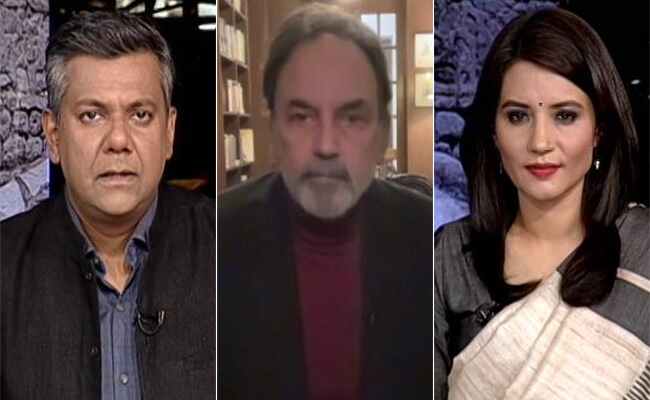
Co-founders of India Animal Fund are all geared up to bring to you the message of animal welfare and #FreedomForAll
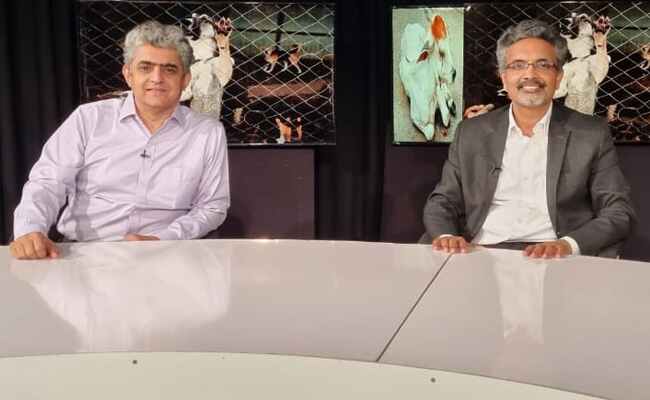
The stage is set and our anchors are ready for the #FreedomForAll telethon!
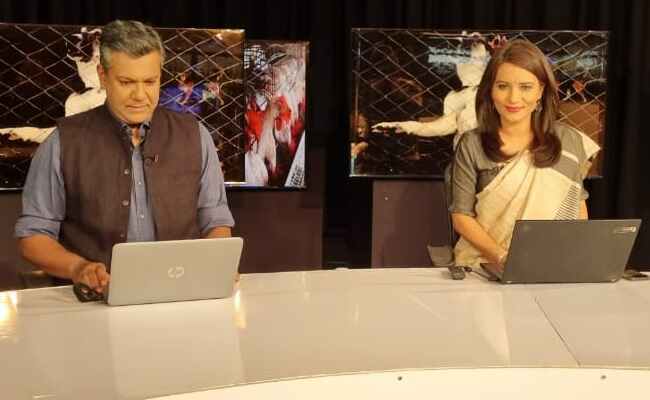
Less than 2 hours to go for #FreedomForAll telethon
You can help reduce animal exploitation and suffering in India by becoming a part of #FreedomForAll campaign and donating to support an animal you love. To donate, click here.
Celebrities call to love and respect animals and envision a world free of animal harm and exploitation
Help animals as they only have us for support
Donate now to help reduce animal exploitation and suffering in India: https://special.ndtv.com/freedom-for-all-108/donate-now
Human health issues, environmental degradation, global warming and challenges of animal well-being are all interconnected. There is an imminent need to be aware of and to adopt a ‘one health’ approach. For one to be healthy, the planet and all living beings on it need to be healthy.
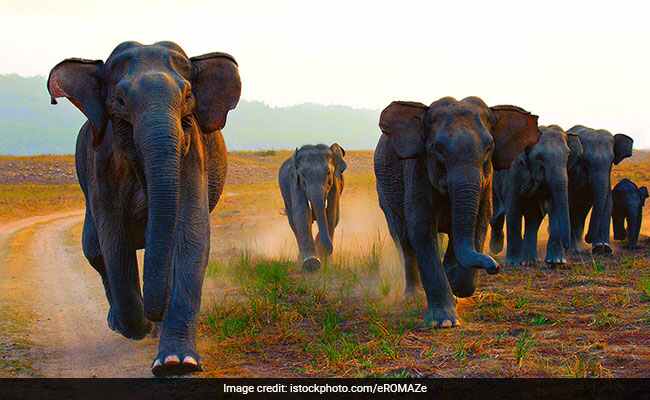
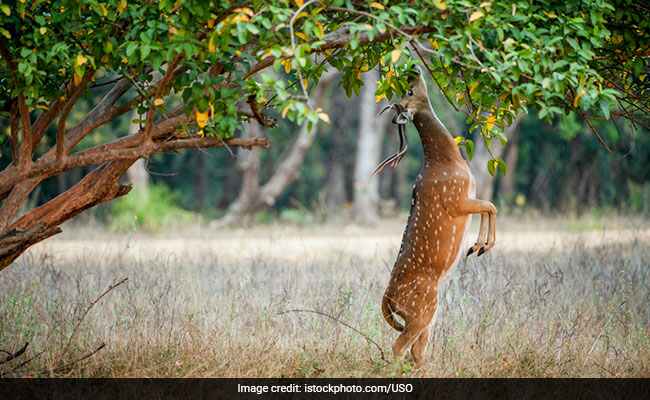
Financial support for animal welfare causes is less than 1 per cent of the amount that comes in for human causes. Animal welfare should concern us all. You can support by donating here.
